May 15, 2024 | 05:55 GMT +7
May 15, 2024 | 05:55 GMT +7
Hotline: 0913.378.918
May 15, 2024 | 05:55 GMT +7
Hotline: 0913.378.918
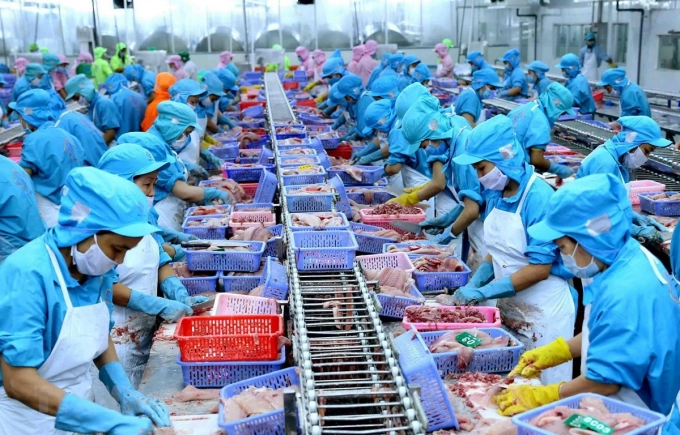
Frozen seafood Processing. Photo: baochinphu.vn
At the end of April 2021, the Vietnam Association of Seafood Exporters and Producers (VASEP) proposed that Ho Chi Minh City should postpone the collection of fees for infrastructure, public service works at border gates, and seaports, during the period of economic difficulties caused by Covid-19.
On May 11, the association informed that it had sent the proposal to the Ministry of Justice so that the ministry would report it to the Government.
As proposed by VASEP, Ho Chi Minh City considers no fee until December 31, 2021. In addition, the city also considers reducing the fees towards not seeing them as sources of contribution to the city’s budget.
VASEP also suggested that Ho Chi Minh City should make report the collection and spending of the fee revenue available and transparent.
On December 9, 2020, at the 23rd meeting, Ho Chi Minh City passed a resolution issued to introduce the levels of fees for using infrastructure facilities and public services at seaport terminals in the city.
The city’s port system plays a vital role in southeastern and Mekong Delta maritime transport. Ho Chi Minh city has four major ports - Cai Lai on Dong Nai River, Nha Be on the eponymous river, Hiep Phuoc on Soai Rap River, and Sai Gon River port.
The large volume of goods transported through ports is putting huge pressure on existing transport infrastructure. Road networks surrounding seaports have not developed commensurately, resulting in heavy congestion, air pollution, and an increase in logistics costs.
Deputy Director of Ho Chi Minh City Department of Transport Bui Hoa An said that Ho Chi Minh City needs VND 970,654 billion to invest in transport infrastructure in the 2020-2030 period. The budget is allocated to invest in transport infrastructure in the 2021-2026 period only meets 24.6% of the above demand.
This deploying of fees collection is expected to contribute VND 3 trillion (US$ 129.70 million) annually for infrastructure development.
The approval of a resolution by the Ho Chi Minh City People's Council on the fee collection has put pressure on the fishery sector as 70% of the sector’s imports and exports must pass through seaports in Ho Chi Minh City.
The fees would be collected from July 1 this year.
In detail, fees for goods temporarily imported for re-export, goods deposited in bonded warehouses, transit and transshipment goods, and imported and exported goods declared outside the city would be VND 2.2 million (US $95.4) per 20ft container, VND 4.4 million (US$ 190.8) per 40ft container, and VND 50,000 (US $2.2) per ton for liquid and bulk cargo.
For imported and exported goods declared in the city, the fee would be around VND 250,000 (US$ 10.8) per 20ft container and VND 500,000 (US$ 21.7) per 40ft container. Fees for liquid and bulk cargo would be VND 16,000 (US$ 0.7) per ton.
In addition, goods serving the security, national defense, social welfare, the handling of consequences of natural disasters and diseases would be free of charge.
The fee collection will lead to a charge overlapping, according to VASEP. Companies will have to pay up to billions of VND each year. For example, Khanh Hoa Seafood Export Joint Stock Company will pay VND 5.5 billion per year with exported 3,000 containers. The company has to pay a total of VND 13 billion per year, including the BOT station fee of VND 7.5 billion.
According to a firm trading in seafood in the Mekong Delta, enterprises have borne multiple fees, including BOT toll, environmental protection, and cargo handling and storage fees and suffered from the transport fee hike. Therefore, the seaport fee will make it more difficult for them, especially when the Covid-19 pandemic has affected their orders.
Currently, there is a large demand for seafood enterprises to import raw materials for processing, product processing, and re-export of finished products. Therefore, it is unreasonable for the enterprise to bear two charges, one for import containers and one for export.
The increase in administrative burden for both businesses and executives is also another reason why VASEP recommends.
According to VASEP, the different fees for cargo declared in and outside the city will pose a high risk of overloading for the city’s customs system as many enterprises may rush to complete customs procedures for their cargo in the city.
Moreover, many enterprises have imported materials for processing and outsourcing before reexporting them. If the fee is collected, they must pay the fee for both imported materials and exported products, which is unreasonable.
Translated by Ha Phuc
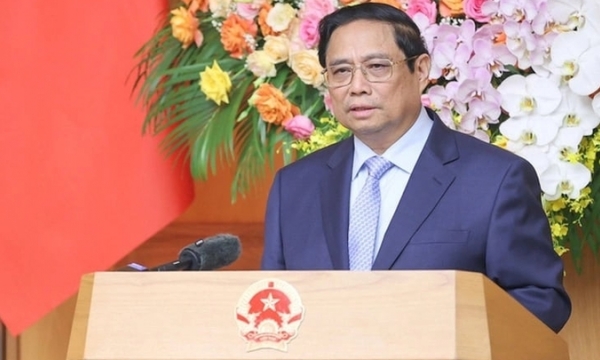
(VAN) On May 14, Prime Minister Pham Minh Chinh chaired a discussion with typical Chinese businesses on green economic development and the digital economy.
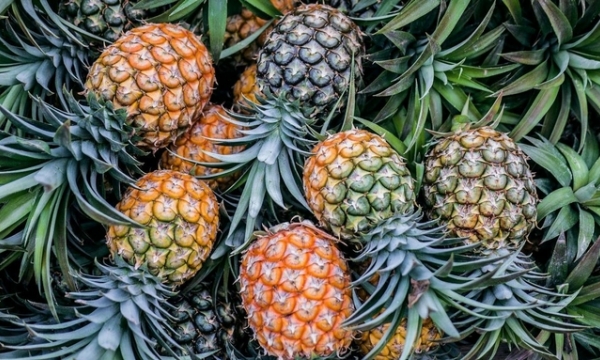
Pineapples are the second fruit from Sri Lanka to gain market access to China, following bananas, which were granted approval in 2015.
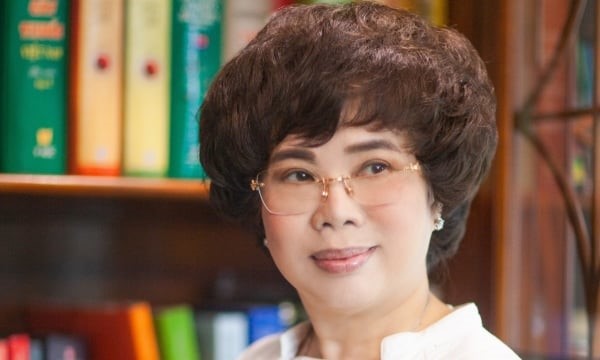
(VAN) Ms. Thai Huong is the only leader awarded the 'Visionary CEO of the Year – CEO with Excellent Vision' award voted by Global Brands.
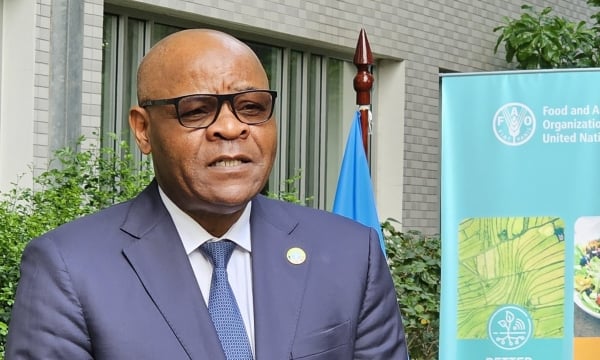
(VAN) Mr. Rémi Nono Womdim, the Food and Agriculture Organization of the United Nations' (FAO) Representative to Vietnam talked to Vietnam Agriculture News on the occasion of International Plant Health Day 2024.
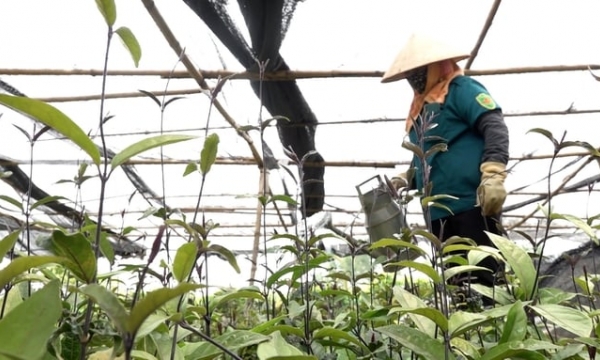
(VAN) Prime Minister Pham Minh Chinh has instructed the Ministry of Health and the Ministry of Finance to refine regulations for this matter in May 2024.
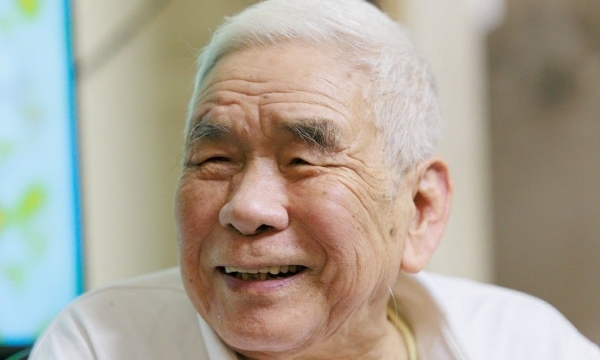
(VAN) Amidst the backdrop of soaring coffee prices, I sought to meet with Mr. Doan Trieu Nhan, who in the eyes of the international community, the 'Mr. Coffee' of Vietnam
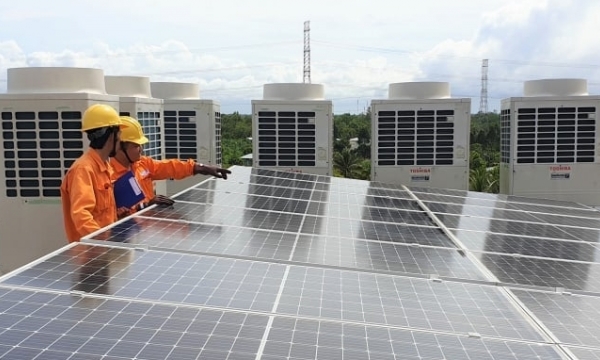
(VAN) Vietnam experienced rapid development in solar power over the past 4 years, from 2018 to 2022, putting pressure on the national power system safety.